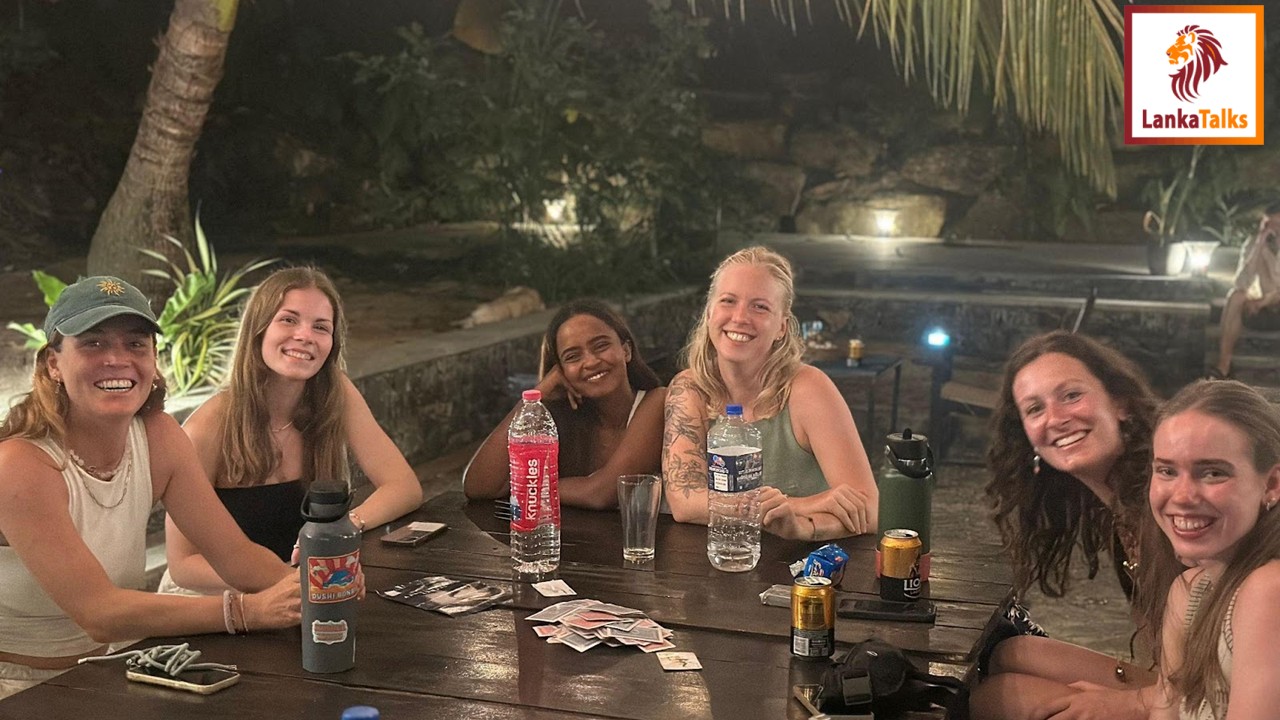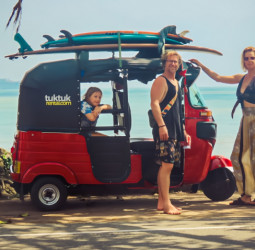Maya Perera
There used to be a time when I thought traveling was about covering as much ground as possible within the time constraints I had given myself – moving from one place to the next, squeezing in every must-see location, and making sure no moment was wasted. But working at a hostel for backpackers in Hiriketiya changed my perspective completely. It’s the kind of place where people arrive with a strict itinerary and then abandon it within days.
I watched countless travelers extend their stay, unable to leave because they had fallen into the beautiful rhythm of life by the sea. We all know that there’s something about waking up to the sound of waves, walking barefoot everywhere, and sharing slow mornings with new friends over coffee that makes you realize travel isn’t about rushing but feeling connected to a place. But that’s not all I learned from working at hostels around the south coast.
The Art of Slow Travel
Hiriketiya taught me that travel isn’t about ticking off places but about sinking into a place, understanding its rhythm, and letting it shape your experience. Watching travelers extend their stay because they “just couldn’t leave” made me realize the magic of embracing slowness.
The beauty of slow travel is that it allows you to truly immerse yourself in a destination. Instead of running from one sightseeing spot to another, you get to experience what it’s like to actually live there. Many of the travelers I met found ways to stretch their budget simply by staying put – renting a scooter for a month instead of taking tuk-tuks every day, cooking in the hostel kitchen instead of eating out for every meal, or getting discounted weekly rates on accommodation. The longer you stay in one place, the more affordable and fulfilling the experience becomes. More importantly, you start forming real connections, not just with other travelers but with the locals who make a place what it is.
Conversations Are More Valuable Than Plans
One of the nicest things for me was realizing that some of the best travel experiences don’t come from planning. They come from conversations. Working at a hostel, I saw this happen every day. A guest would casually mention a hidden beach they found, and suddenly half the hostel would plan a sunrise trip there the next morning. Someone would rave about a tiny, family-run rice and curry spot, and soon enough, it became the new favorite lunch place. Some of the most magical places you’ll ever visit aren’t listed in travel guides or shown on Instagram – they’re passed down from traveler to traveler, shared over a post-surf beer or a lazy afternoon chat.
Hostel common areas are the best places to gather information – you’ll hear seasoned backpackers talk about places they loved (and the ones that weren’t worth it). Even asking the hostel staff for recommendations can lead you to experiences that aren’t touristy, like visiting a local fisherman’s village or joining a beachside bonfire with locals. The more you let go of rigid plans, the more opportunities open up. Some of the best travel memories start with, "I was supposed to leave yesterday, but then I met…"
The Ocean Changes People
I saw first-timers struggle with their first waves and then transform into ocean-addicted souls who structured their entire travels around surf forecasts. The sea humbles, teaches patience, and connects people in ways few things can.
Some were even afraid of the water, but by the time they left, their entire trip revolved around the waves. Surfing isn’t just about balancing on a board; it’s about learning patience, resilience, and surrendering to nature. At first, it’s frustrating. You paddle out, get knocked down by wave after wave, and wonder if you’ll ever get the hang of it. Then, on the tenth, twentieth, or maybe even fiftieth attempt, you finally catch a wave – and everything changes! That brief moment of riding the ocean’s energy is enough to hook you for life.
Packing Light is a Superpower
Watching long-term travelers come and go, I saw that the happiest ones carried only what they truly needed. A few versatile outfits, a solid pair of flip-flops, and a reusable water bottle were more valuable than a stuffed backpack. The less you carry, the more freedom you have to move spontaneously.
I saw so many travelers struggling with massive backpacks stuffed with things they never actually used. On the other hand, the ones who packed light moved effortlessly, never worrying about overweight baggage fees, aching shoulders, or needing to leave things behind. The most seasoned travelers I met had a few key essentials that made all the difference. A sarong was far more useful than a bulky towel, working as a blanket, a beach mat, and even a makeshift curtain in hostel dorms. Shoes were one of the biggest mistakes people made! They would bring heavy hiking boots when all they really needed was a pair of flip-flops and lightweight sneakers.



 A.R.B.J Rajapaksha
A.R.B.J Rajapaksha



